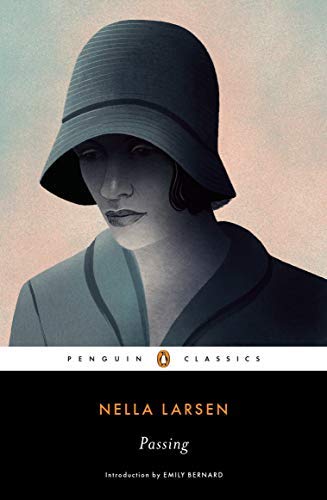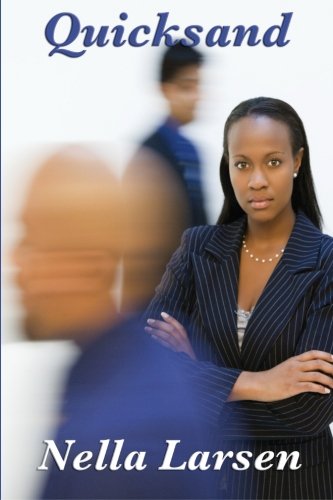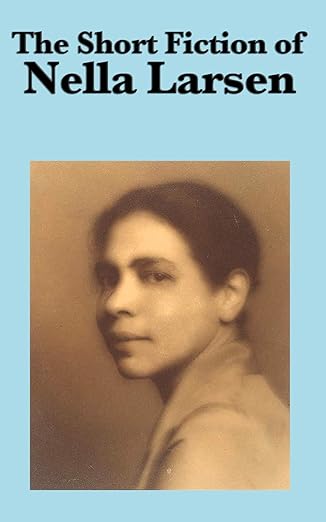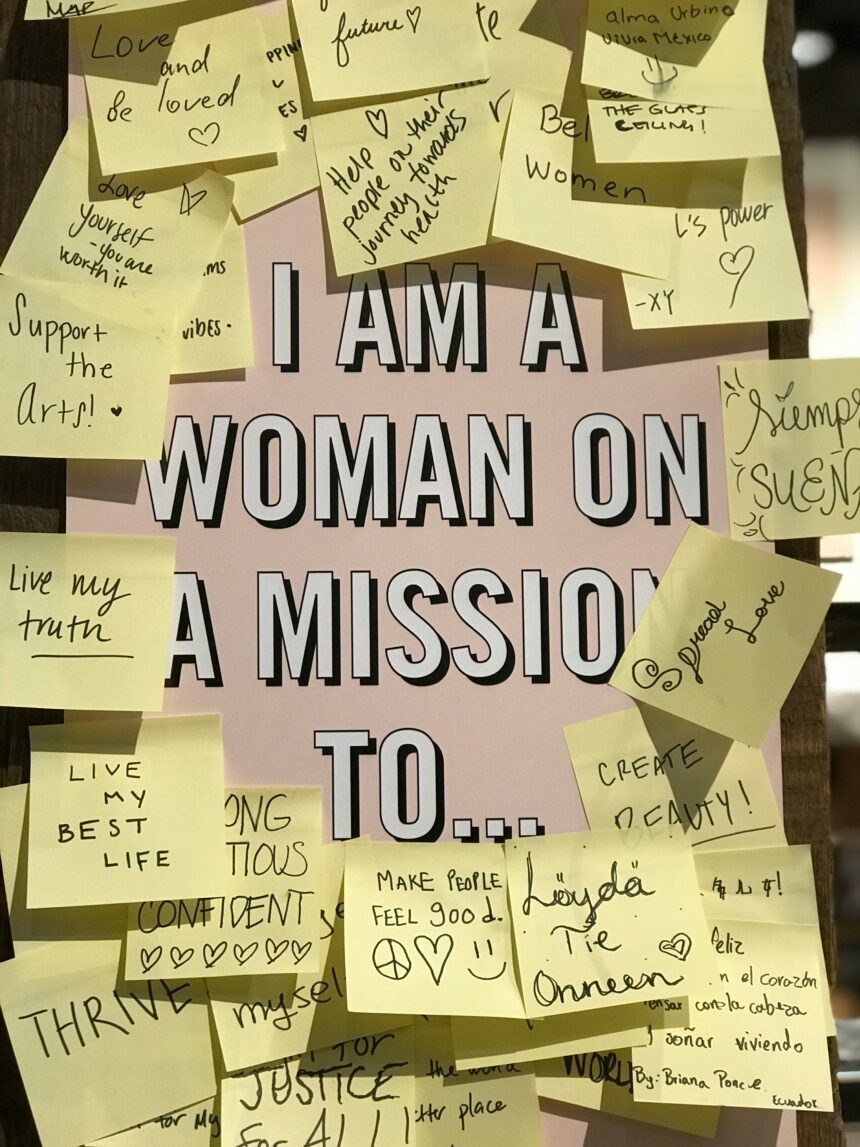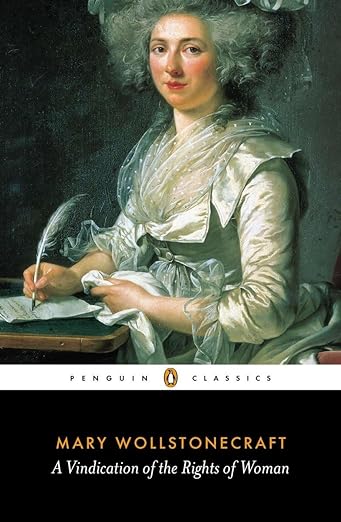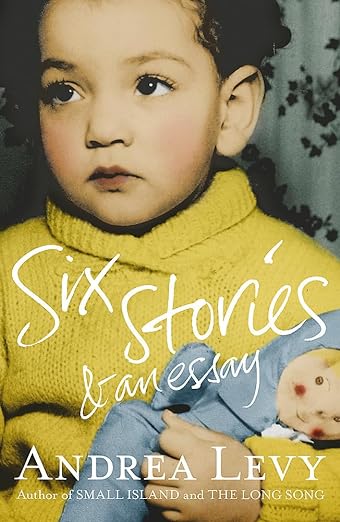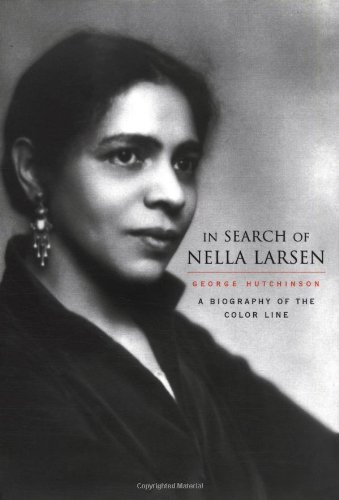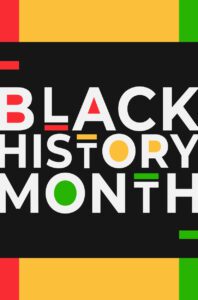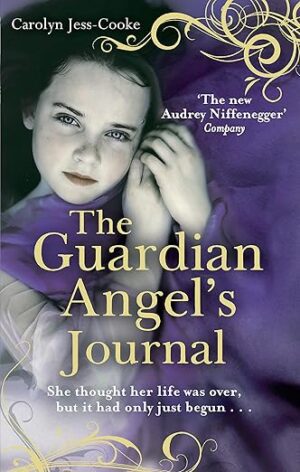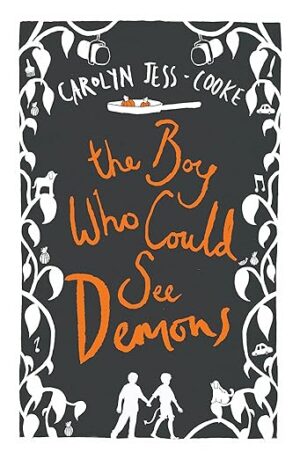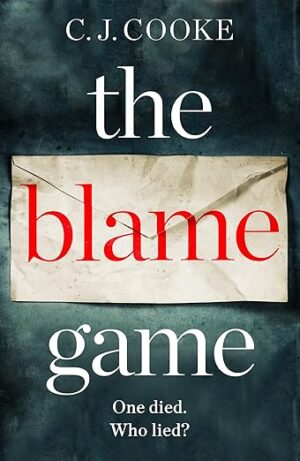Did you know that the earliest version of International Women’s Day (IWD) can be traced to 1909, when the Socialist Party of America organised a Women’s Day Event in New York? Or that in the decades which followed, IWD was not only embraced by feminists but celebrated as a holiday in Communist countries? The final step in this coming-of-age tale happened in 1977 when the United Nations formally adopted International Women’s Day, making it a global mainstream holiday.
I am more than aware that some people regard IWD as an irrelevance or another example of so-called “wokeism”. What they choose to think is entirely up to them, but I personally see it as an opportunity to pull down the barriers that are making it difficult for many women to get on with their lives. It takes courage to either challenge an injustice or question the received orthodoxies that restrict a woman’s right to flourish. Thankfully there’s no shortage of women using activism, literature, or other means to call out the wrongs. Some have set-up support networks to fight sexism in the workplace, while others are pushing back against gender/racial prejudice by writing books that either are or have since become literary classics. For many, it has been a tough and even scarring journey, yet the appetite for change hasn’t diminished if anything it has grown stronger.
For International Women’s Day I have chosen a group of female writers who have lived life on their own terms, spoken truth to power, challenged social preconceptions, or used the platform of a book or a newspaper column to reach out to legions of ordinary women.
That’s something worth celebrating on this special day of ours.
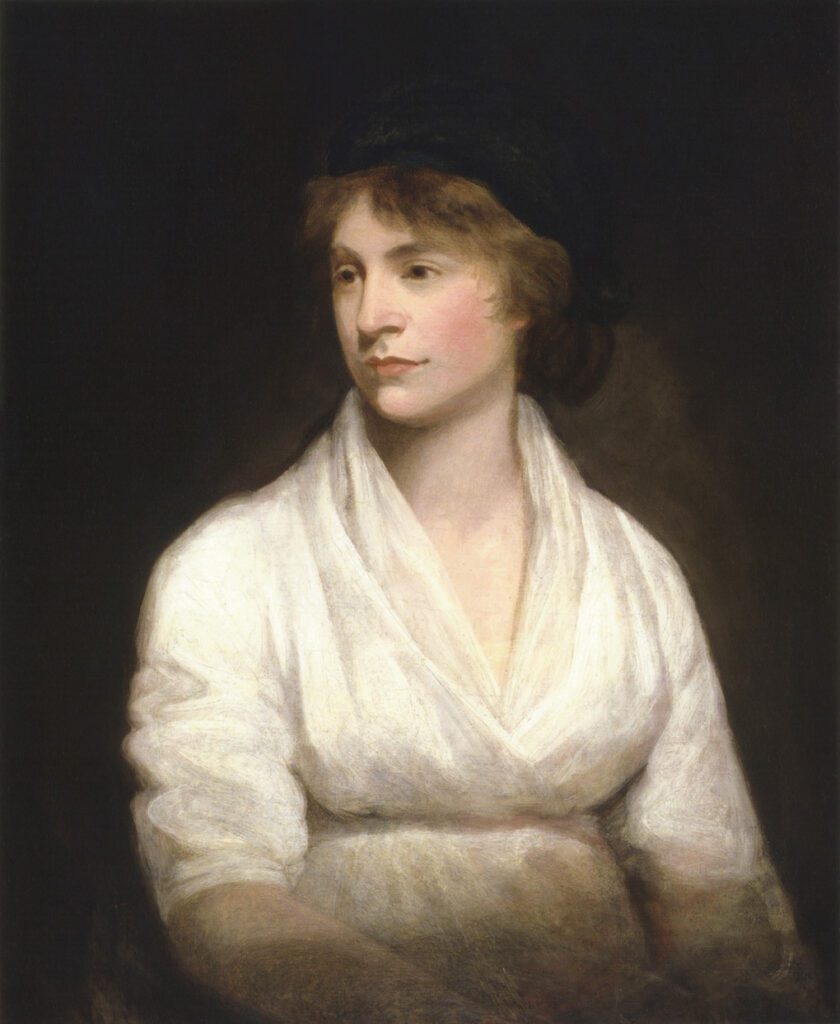
Mary Wollestonecraft: 1759 – 1797
“I do not wish them [women] to have power over men; but over themselves.”
Writer, abolitionist, philosopher, and women’s rights advocate, Mary Wollstonecraft was born in 1759 and is regarded as the mother of first-wave feminism. Her seminal work, A Vindication of the Rights of Women, pushed the then radical idea that women are not naturally inferior to men and that both sexes are in fact rational. By challenging the prevailing assumption that men have the monopoly over reason, she was also positing the view that gender norms are socially constructed, an argument later attributed to twentieth century feminists. Wollstonecraft’s ideas were denounced by her contemporaries but as time would prove, she was the one on the right side of history.
Click on the cover to find out more about A Vindication of the Rights of Women by Mary Wollestonecraft.
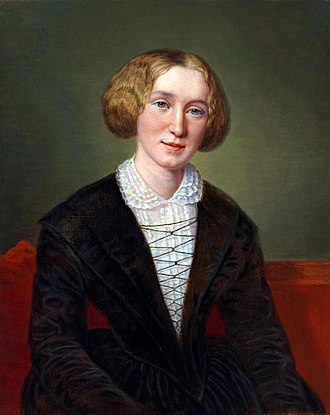
Mary Ann Evans: 1819 – 1880
“And, of course men know best about everything, except what women know better.”
Mary Ann Evans – aka George Elliot – was the author of seven novels, short stories, novellas, and over two hundred poems. A woman of formidable intelligence, Elliot’s private life often attracted as much attention as her writing. For nearly a quarter of a century she openly lived with a married man, even calling him her “beloved husband”, and after his death tied the knot with a man twenty years her junior. Victorian society was horrified, but Elliot’s genius extinguished the outrage! Middlemarch, described as one of the finest novels in the English language, was her triumph. Set in a fictious village, it explores the timeless themes of love, shame, and failed idealism using multiple backstories and sympathetically drawn characters. Elliot wasn’t the first woman to write under a man’s name (nor the last) and it’s tempting to ask if The Mill on the Floss, Silas Marner, Adam Bede, Daniel Deronda, Romola, and Felix Holt the Radical, would have been taken as seriously if they had been published under her own name?
Click on the covers to find out more about the works of George Elliot.
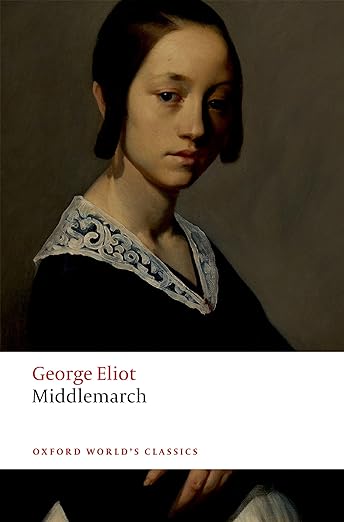
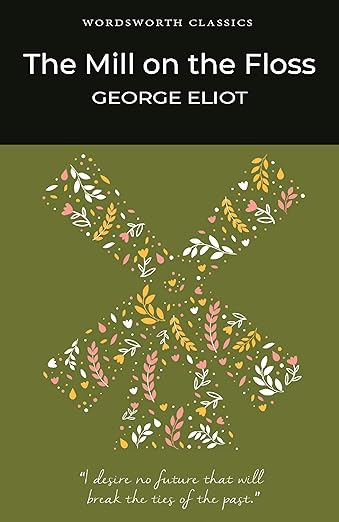

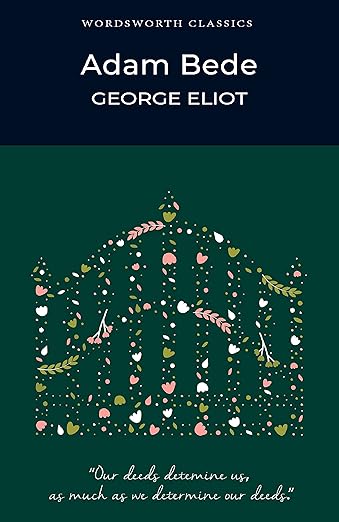
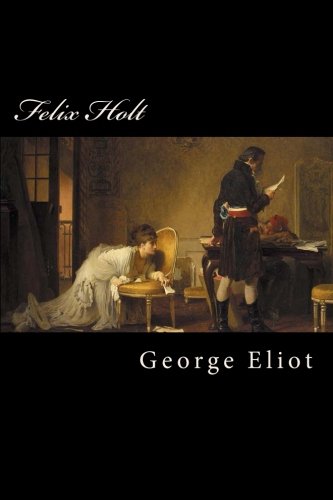
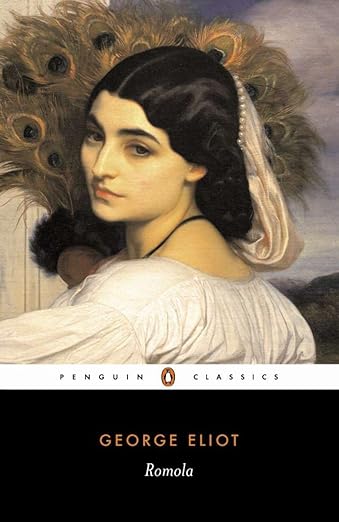
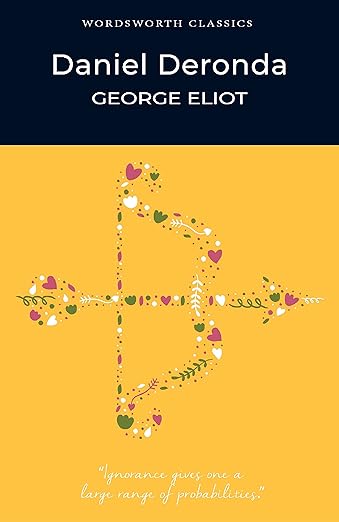
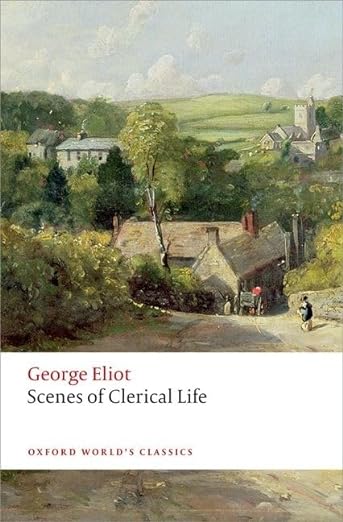
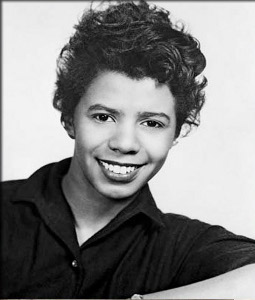
Lorraine Hansberry: 1930 – 1965
“If, by some miracle, women should not ever utter a single protest against their condition, there would still exist among men those who could not endure in peace until her liberation had been achieved.”
George Orwell once wrote that “good writing is like a windowpane” but it was US playwright Lorraine Hansberry who pulled the curtain back from the window to expose the perniciousness of racism. Her award winning play A Raisin in the Sun, the first by an African American female writer to debut on Broadway, was her vehicle of expression. Celebrated as one of the greatest plays ever written, it is a powerful study of a working-class African American family living with the impact of segregation, financial hardship, and stymied ambition. As a black woman whose childhood had been spent in a hostile white neighbourhood, Hansberry was all too familiar with the subject! Her death at the age of 34 robbed the literary world of one of its fiercest talents, but she left behind an extraordinary body of work that burns with a passionate, raw energy and the abiding message that everyone has the right to own and control their destiny.
Click on the covers to find out more about the plays of Lorraine Hansberry.
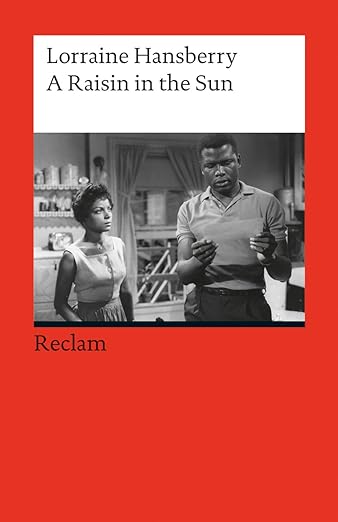
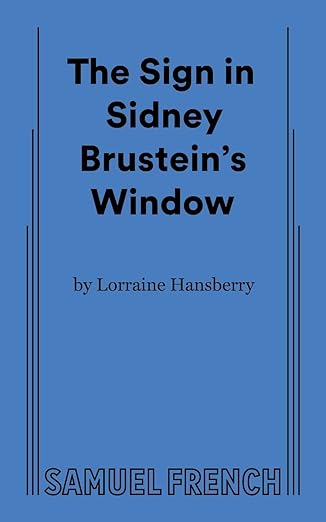

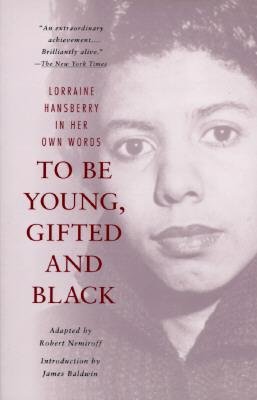
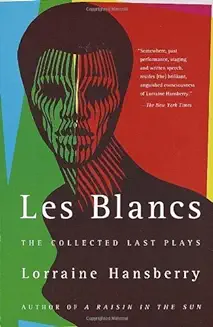
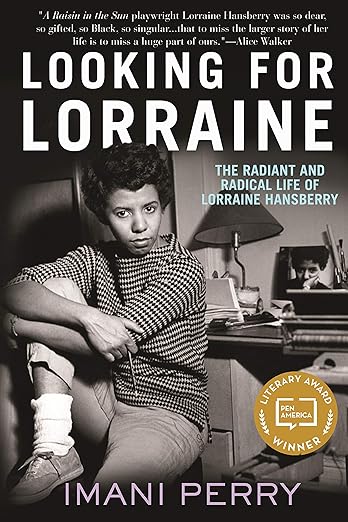
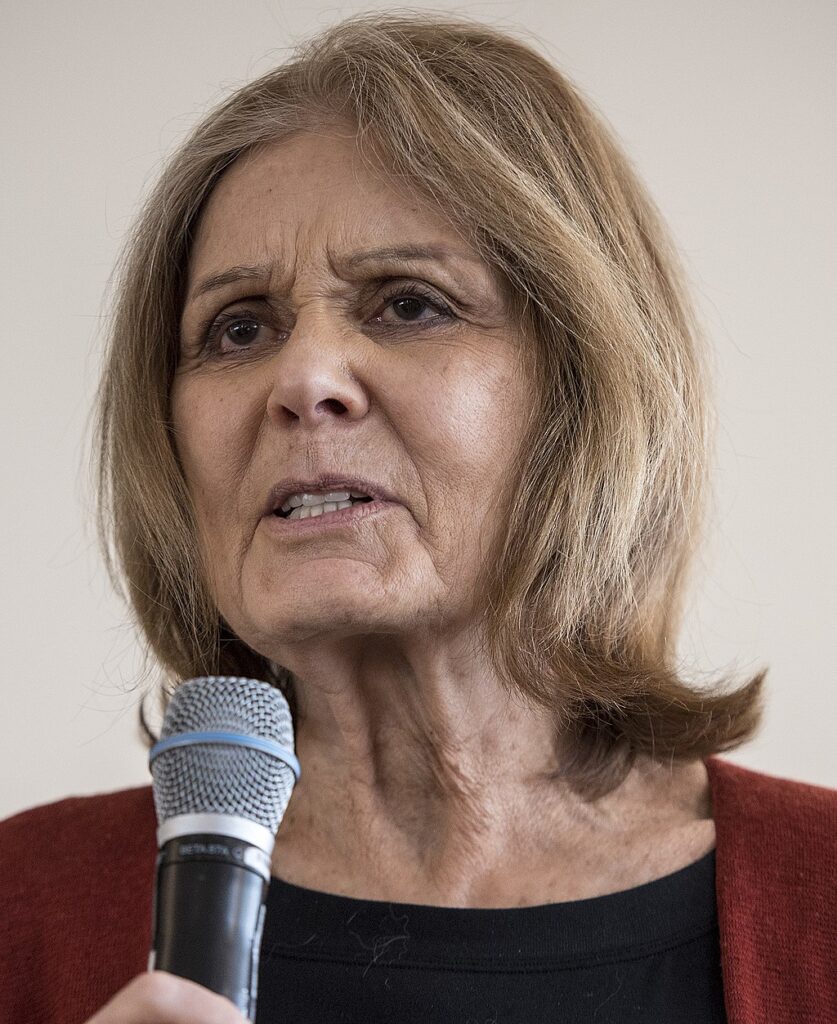
Gloria Steinem Born: 1934
“There’s no greater gift than thinking that you had some impact on the world, for the better.”
Journalist, writer, and social/political activist Gloria Steinem is one of the most recognised faces of US feminism. The activism that defines her was forged by an itinerant childhood and two years of post graduate studies in India, paving the way for her future direction. As a freelance journalist, Steinem worked in male dominated newsrooms where women were often relegated to writing “soft” unassuming features for the home pages. Even after her famous 1963 expose of the shocking working conditions in Hugh Heffner’s Playboy clubs (she went undercover to work as a bunny girl), Steinem had to fight for respect! She co-founded the feminist publication Ms Magazine along with organisations promoting female reproductive rights and the positive representation of women in the media. Steinem’s books include her critically acclaimed autobiography My Life on the Road, which has been praised for the power of its writing and its reminder to all feminists of the battles that have yet to be won.
Click on the covers of this selection of books by Gloria Steinem.
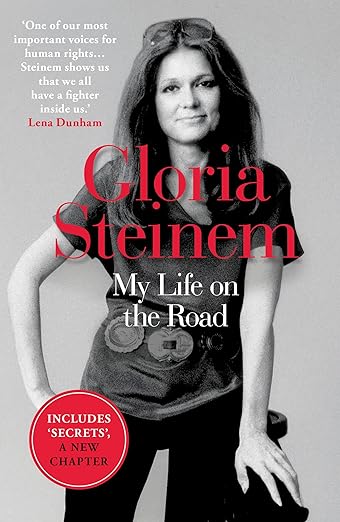
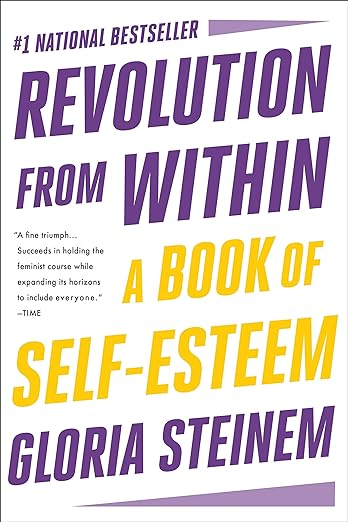
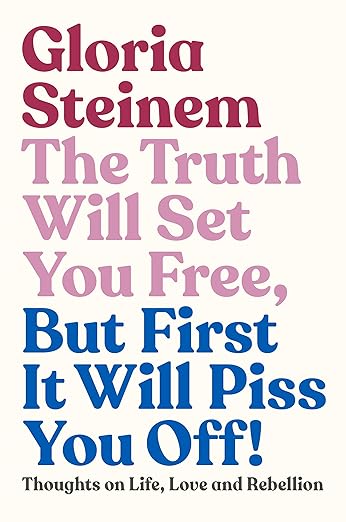
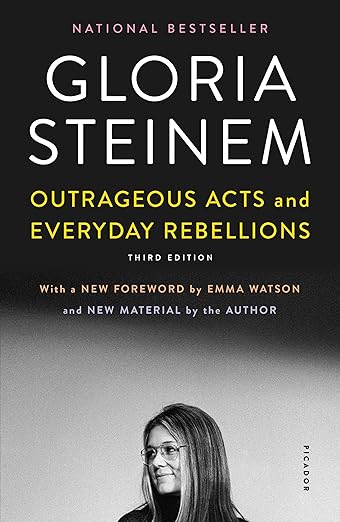
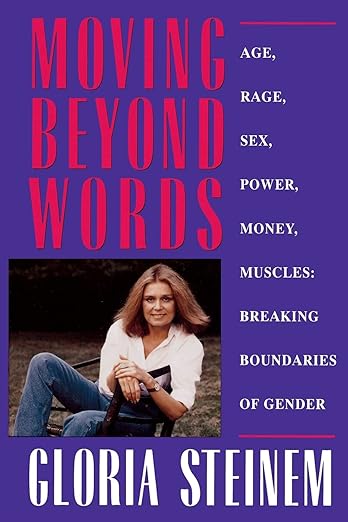
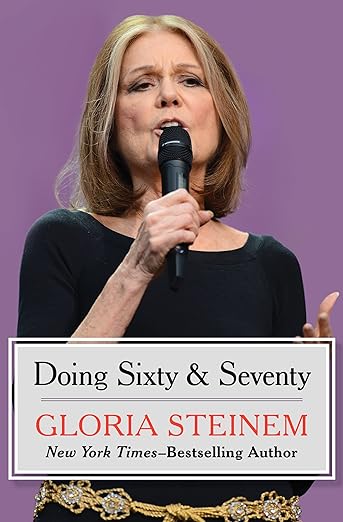
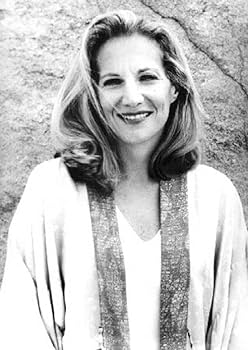
Kathryn Harrison: Born 1961
“We’re taught to expect unconditional love from our parents, but I think it is more the gift our children give us. It’s they who love us helplessly, no matter what or who we are.”
The Kiss, the 1997 memoir of American writer Kathryn Harrison, was controversial from the word go! Critical opinion was deeply divided over a book which painfully described the author’s incestuous relationship with her father. Some praised her courage in revealing what happened, while others called her “creepy” because she was 20 when the four year “relationship” began. Harrison didn’t conform to society’s perception of a “typical” abuse victim: she was neither a child or a teenager but a young woman who, by the logic of the argument, was adult enough to say No! Yet at the time, Harrison was in an emotionally difficult place and therefore vulnerable to the ruthless manipulation of the predatory father she hadn’t seen in years. Today we would call that grooming, but back then the word didn’t exist! The Kiss challenged preconceived ideas about abuse victims, as Harrison inched open a door for those who had lived through a situation like hers to discard the shame and silence around sexual abuse.
Click on the covers of this selection of books by Kathryn Harrison.
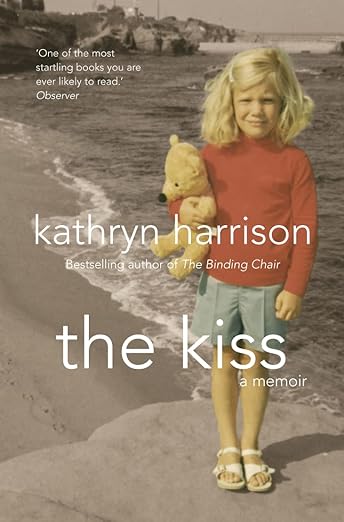
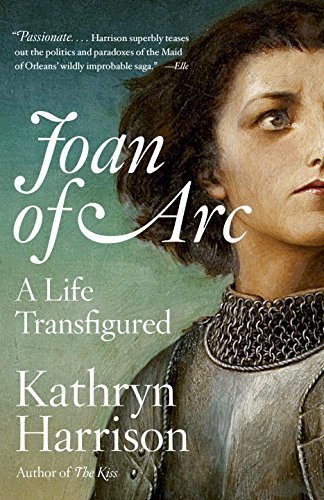
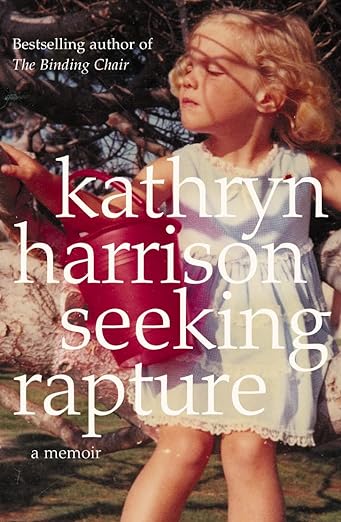
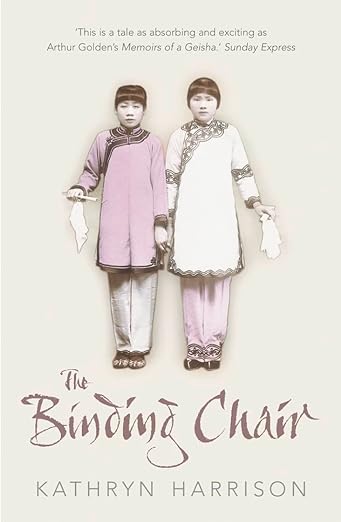
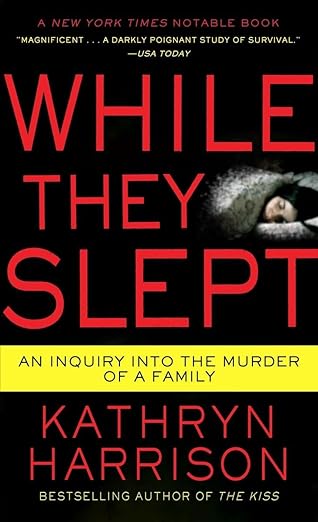
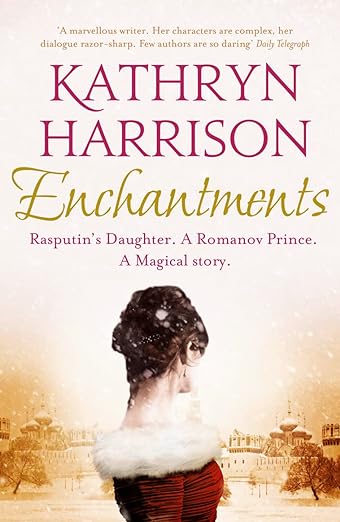
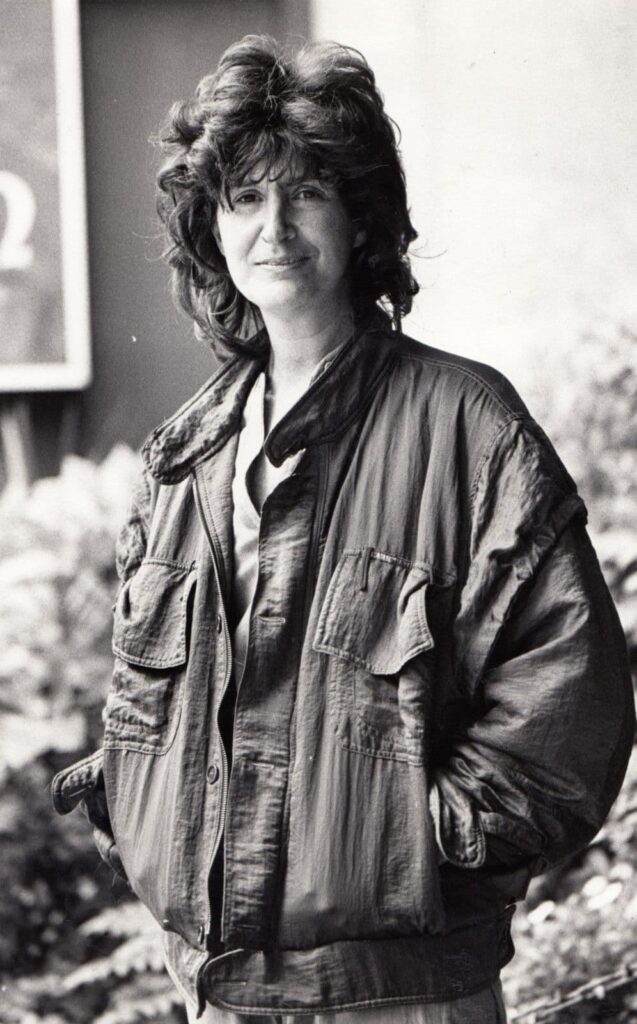
Jill Tweedie: 1936 – 1993
“I am still sure of absolute wrong but much less certain of absolute right.”
Once upon a time a generation of British women couldn’t get enough of writer and feminist Jill Tweedie. In the 1970s and 80s her newspaper columns, noted for their warmth, wisdom, and disarming honesty, were the go-to support mechanism for women drowning in the banalities of domesticity. Tweedie connected with her audience because, like her, they had come to feminism in the 1960s and 70s. Tweedie’s insightful way with words and punchy style of writing explored the ambivalences within the feminist movement while encouraging her readers to feel positive about themselves. Tragedy was never far from her own life, which she described in moving detail in her autobiography Eating Children and the unfinished memoir Frightening People. Yet despite the trauma of two failed marriages, the death of a son, and the abduction of her two other children, Tweedie never demanded pity, nor did she lose her talent for finding laughter amidst the tears and suffering.
Click on the covers of this selection of books by Jill Tweedie.
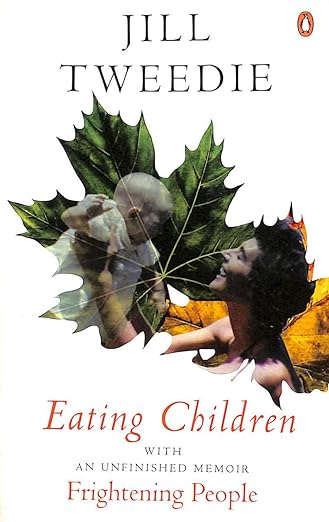
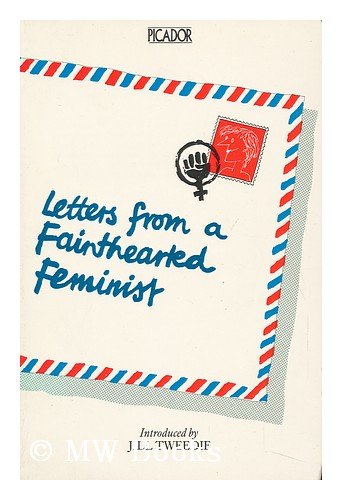
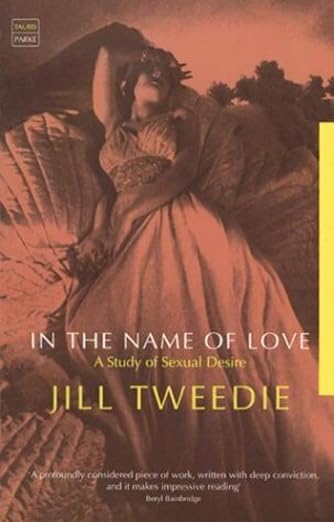
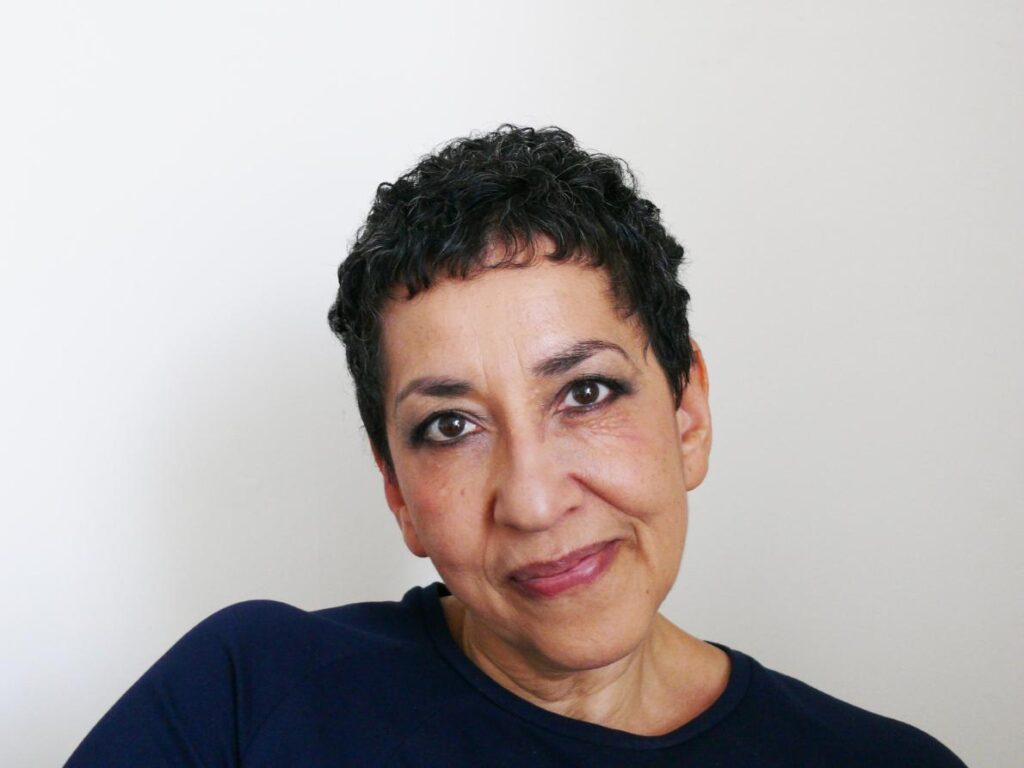
Andrea Levy: 1956 – 2019
“Laugh as much as you breathe and love as long as you live”
There was no finer chronicler of the Black British diaspora than Andrea Levy whose writing won her legions of fans and some of literature’s biggest prizes. Born in London to Jamaican parents, the casual racism she experienced as a child left her feeling embarrassed and even ashamed of her Caribbean roots. That changed at the age of 26 when a racial awareness course jolted her into recognising, accepting, and exploring her identity! Levy’s analysis of her earlier sense of shame and the value of belonging, found their way into novels exploring race, class, prejudice and the forgotten history of the Caribbean. Her early books were well received but it was Small Island, a story of Jamaican immigrants living in the UK after the second World War, that propelled her into the major league. Andrea Levy was an impressive storyteller who passionately believed in the power of words to bring about change which is why she is celebrated as a voice of wisdom, truth, and reason in the black literary landscape.
Click on the covers to find out more about the novels and short stories of Andrea Levy.
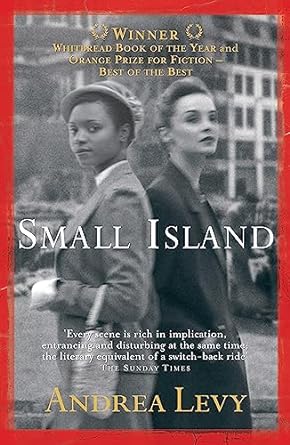
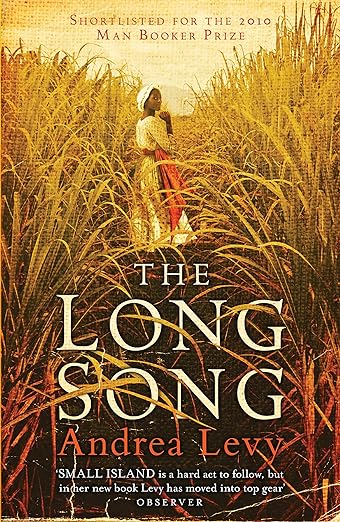
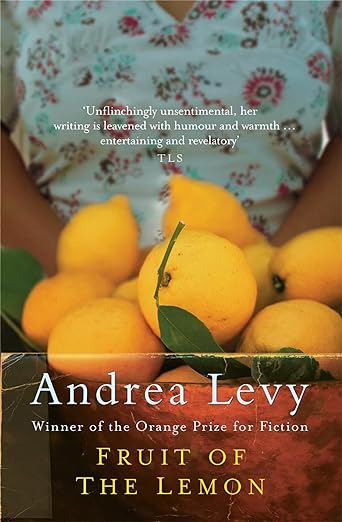
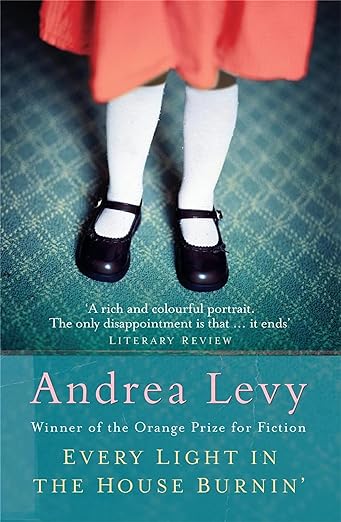
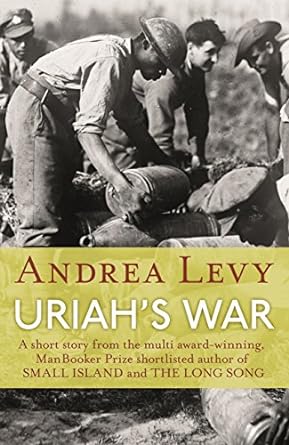
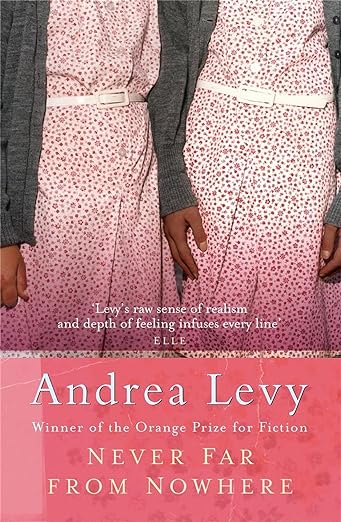
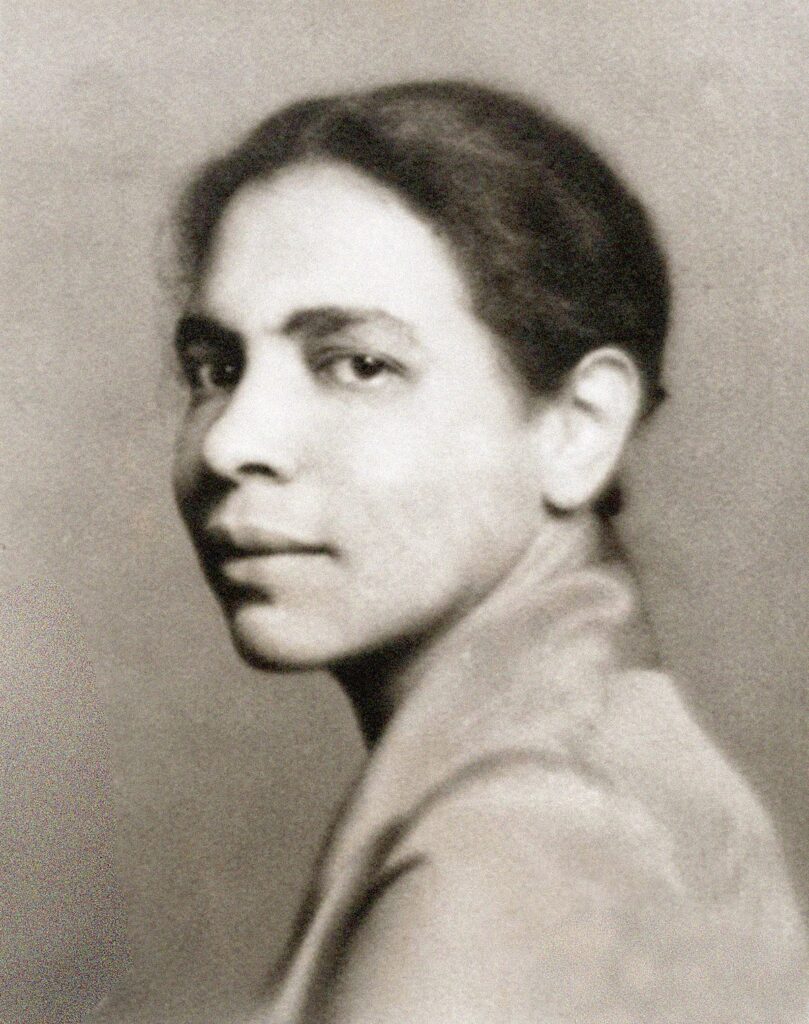
Nella Larsen: 1891 – 1964
“It’s easy for a Negro to ‘pass’ for white. But I don’t think it would be so simple for a white person to ‘pass’ for colored.”
Although Nella Larsen’s output was small (two novels plus a handful of short stories), she is regarded as a major figure of the Harlem Renaissance. Contemporaries praised her clear-headed, unsentimental exploration of the psychology of racial identity, yet that didn’t prevent Larsen from slipping into obscurity after she was accused of plagiarising a short story. The rediscovery of the novels Quicksand and Passing have rescued her from the shadows and pulled her into the orbit of a new generation of readers. In writing about black identity, biracialism, and class alienation she was referencing her own experiences as a mixed-race woman (Larsen was of Danish/Afro-Caribbean heritage) born and raised in the United States. Like the protagonists of her stories, Larsen wrestled with her dual identity and the feelings of marginalisation it incurred, which is why her writing resonates to this day, sixty years after her death.
Click on these covers to find out more about the works of Nella Larsen.
